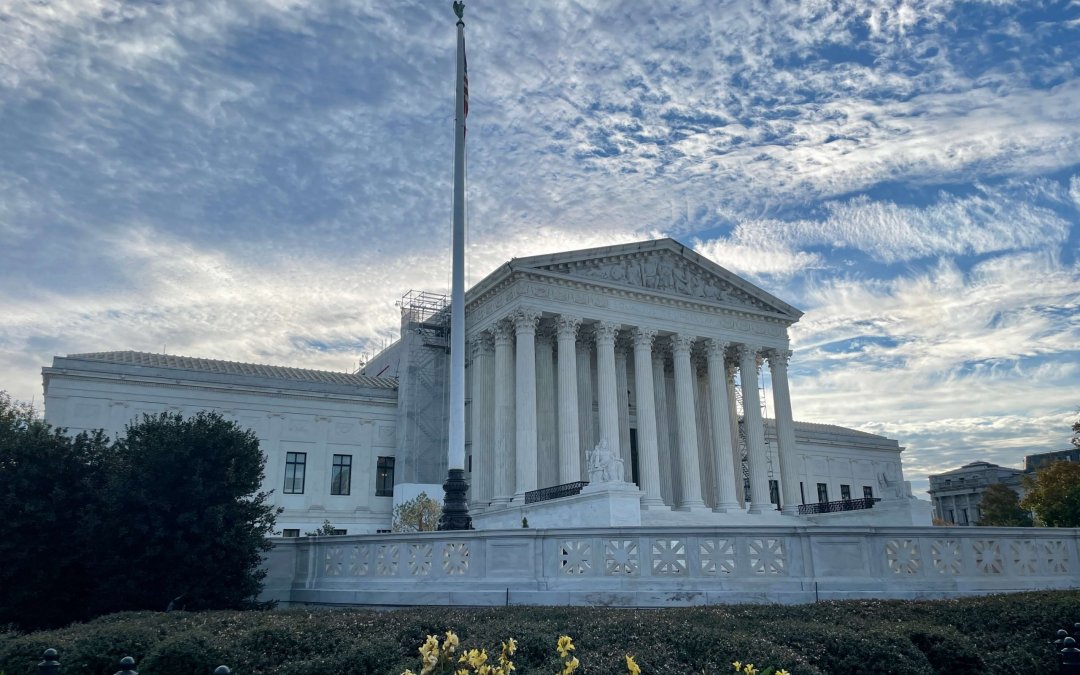WASHINGTON — U.S. Supreme Court Justices signaled uncertainty over whether survivors of the Hungarian Holocaust and their heirs could seek monetary compensation from property confiscated during the genocide in a case Tuesday.
Over 560,000 Hungarian Jews, more than two-thirds of the country’s pre-war Jewish population, were killed during the Holocaust, with the Hungarian government actively collaborating with the Nazis. In 1944, the Hungarian government declared Jewish-owned valuables part of the national wealth and confiscated property, including cash, art and jewelry.
In 2010, 14 survivors and their heirs filed a federal lawsuit in the U.S. Court of Appeals for the District of Columbia against the Hungarian government and its national railway, MÁV, accusing them of aiding Nazi atrocities and stealing property.
Under the Foreign Sovereign Immunities Act (FSIA), foreign nations are generally immune from U.S. lawsuits, but exceptions exist. Through the so-called “expropriation exception,” defendants are subject to suit if any of the taken property is present in the U.S. as commercial activity or owned in part of a foreign state which is involved in commercial activity with the U.S., according to the American Bar Association.
The respondents asserted that Hungary profited from the liquidation of the assets through the “commingling” of the property into the country’s government funds.
The judges expressed uncertainty over how to feasibly trace the assets over the 75-year period, using hypotheticals to question the attorneys on their interpretations of the law.
Justice Amy Coney Barrett gave an analogy of stealing Justice Neil Gorsuch’s car, selling it, and then buying a painting with the cash, to question Assistant to the U.S. Solicitor General Sopan Joshi about the definition of “exchanging” as it is worded in the FSIA.
“Twenty years later, I sell it, and then I buy a beach house. Would we really say that I’ve exchanged Justice Gorsuch’s car for the beach house?” Barrett said. “What I’m trying to figure out is why any of that is an ‘exchange’ once we go beyond the first step.”
The United States, who appeared in court as amicus curiae and supported the petitioners, argued that ruling in favor of the respondents may open the floodgates for foreign nationals to sue the U.S. government for expropriation cases.
Justice Samuel Alito questioned Joshi on if there were plausible causes for foreign countries or nationals to sue the U.S. in retaliation.
“I’m not saying that’s going to happen. I’m saying it risks it happening,” Joshi said in response.
Director of the Loyola Justice for Atrocities Clinic Rajika Shah co-wrote an amicus brief submitted by The 1939 Society, an organization of Holocaust survivors and descendents. Shah called the United States’s argument “insulting.”
“If the United States ever committed anything anywhere near approaching the atrocities of the Holocaust, I would be absolutely delighted to see claims being brought in any forum… or any other country around the world,” Shah said. “That argument just simply cannot hold any water whatsoever.”
Other justices, including Justice Elena Kagan, seemed skeptical about overruling the expropriation clause of the FSIA.
“Doesn’t this provide a roadmap to any country that wants to expropriate property?” Kagan asked. “In other words, just sell the property, put it into your national treasury, and insulate yourself from all claims for all time?”
The Supreme Court’s decision is not expected to be released until mid-2025.

